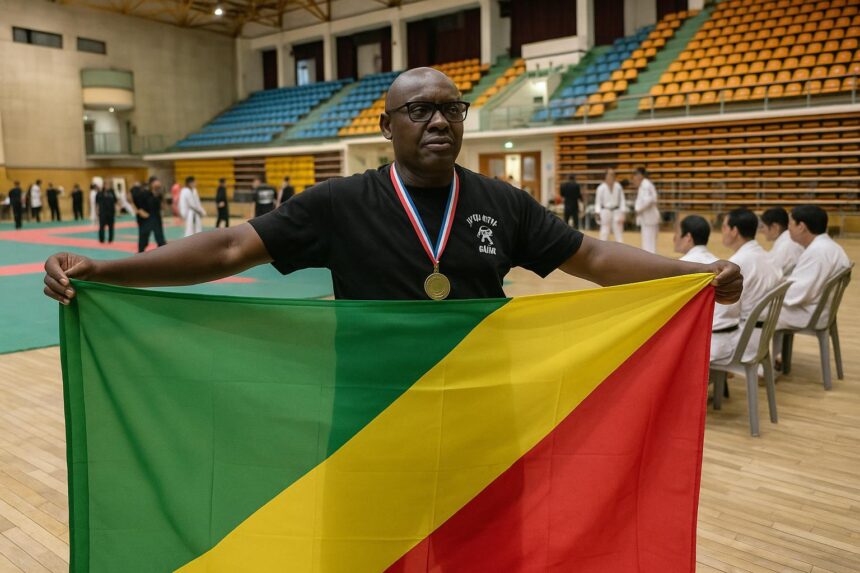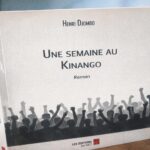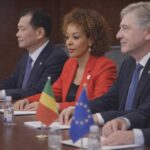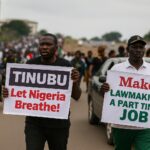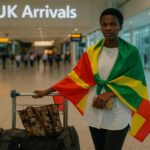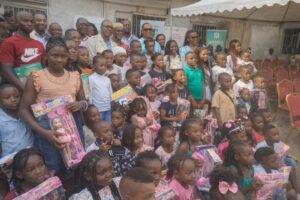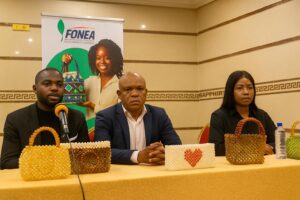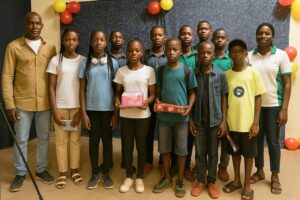Seoul Hapkido Tournament Highlights
In late summer 2024, the sprawling gymnasium of Yongin University, a cradle of Korean martial arts excellence, hosted the joint International Hapkido and Taekgyeon Seminar alongside the corresponding championship, drawing delegations from thirty-two nations across five continents.
Among the athletes stepping onto the blue mats stood Edmond Narcisse Gantsie Dzia, president of the National Hapkido Federation of the Republic of Congo, determined to demonstrate Brazzaville’s growing expertise in the demanding discipline.
Entered in the senior heavyweight division of plus83kg, a category that also includes seasoned veterans, the Congolese martial artist progressed through two preliminary rounds before conceding a tight semifinal to United States representative Jacob Myers, securing a bronze medal in the final ranking.
The podium was completed by French practitioner Luc Barrière, whose silver placed Gantsie Dzia just one notch below Europe’s current champion, an outcome commentators from Korean broadcaster Arirang described as “a notable breakthrough for Central-African hapkido.”
Seoul Martial Arts Seminar Dialogue
Parallel to the competition, delegates spent four days exchanging research on biomechanics, athlete safety, and curriculum harmonisation, themes that align with the Congolese federation’s roadmap to professionalise coaching at provincial level.
During a plenary session, Gantsie Dzia presented a short paper outlining Brazzaville’s pilot programme to introduce hapkido modules into secondary school physical education, citing early support from the Ministry of Sports and Youth (Congolese Press Agency).
Korean hosts welcomed the initiative, with Grandmaster Lee Yong-Soo, chair of the International Hapkido Federation, calling it “evidence that martial heritage can travel responsibly across cultures,” and pledging to dispatch volunteer instructors for a teachers’ workshop in Brazzaville next spring.
Observers from UNESCO’s Intergovernmental Committee for Physical Education noted that the Republic of Congo’s policy echoes the organisation’s Kazan Action Plan, placing combat sports within broader health and social cohesion agendas.
Congolese Hapkido Growth
The bronze secured in Seoul arrives only four months after Gantsie Dzia’s identical result at the Moscow International Open, illustrating a steady climbing curve since his federation’s official recognition by the Congolese Olympic Committee in 2021.
At home, membership has expanded from three clubs to twenty-one across Brazzaville, Pointe-Noire and Dolisie, fuelled by partnerships with community centres and private security companies seeking self-defence certification, according to federation secretary-general Mireille Obili.
Analysts at the African Association for Martial Arts Studies suggest that such growth mirrors a continental shift toward Asian combat systems as vehicles for soft-power dialogue with Seoul and Beijing.
Still, training infrastructure remains modest, and the federation relies on periodic grants from the Sport Solidarity Fund instituted by President Denis Sassou Nguesso, a mechanism that has also backed fencing and rowing during recent seasons.
Sports Diplomacy Between Congo and Korea
Korea’s Ministry of Culture, Sports and Tourism has prioritised outreach to Francophone Africa since 2022, seeing in cultural competition a bridge toward markets for creative industries; Brazzaville is considered a receptive gateway because of its stable regulatory environment.
The Congolese embassy in Seoul, reopened in 2017, facilitated logistics for the delegation, while Korean diplomats in Brazzaville co-sponsored visa workshops for aspiring athletes earlier this year, according to ambassador Kim Kijoon.
Dialogue around future joint academies was advanced on the seminar’s sidelines, with Congo’s National Episcopal University reportedly discussing a memorandum on dual-degree programmes in sport management and physical therapy.
Commenting on the trend, Jean-Michel Mabiala, researcher at the Institute for Security Studies, argues that “athletic exchanges often prefigure broader cooperation in digital education and agro-technology, areas where both capitals have complementary ambitions.”
Brazzaville 2025 Martial Arts Outlook
The National Hapkido Federation plans to stage its first Central African Open in Brazzaville in mid-2025, targeting participation from Cameroon, Gabon, and the Democratic Republic of Congo, an event anticipated to attract regional media and tourism revenue.
Preparations include the refurbishment of Alfred Nakombo Arena, a facility upgraded during the 2015-All-Africa Games, with supplemental mats and electronic scoring systems promised by the Korean manufacturer Mooto.
Gantsie Dzia tells this magazine he will pursue higher podium finishes yet stresses institutional impact: “Medals matter, but sustainable coaching networks make the real legacy for Congolese youth.”
Whether funding arrives through public-private partnerships or regional blocs, the Seoul bronze signals that the Republic of Congo is positioning itself as a credible interlocutor in the evolving geopolitics of martial arts.
International Recognition of Congolese Hapkido
At continental scale, the African Union’s Sport Council shortlisted Brazzaville’s federation for its 2024-2027 development grant, citing transparent governance and gender-balanced participation, an assessment applauded by observer leaders.
Meanwhile the World Games Federation confirmed that hapkido will feature as a demonstration sport in Chengdu 2025, offering Gantsie Dzia and peers a multisport stage to consolidate rankings and sponsorships.
Sports-marketing firm Octagon estimates African combat-sport audiences have grown by 18% annually since 2020, suggesting corporate interest in Congolese athletes may soon spread from telecoms into banking and e-commerce.

